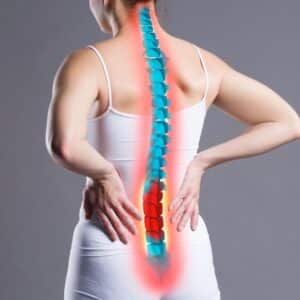
Here are a few ways that we can help treat your herniated disc and get you back to enjoying life.
Causes of Herniated Discs
Several things can cause a herniated disc in your back. One of the more common causes of a herniated disc is general wear and tear of the spine. As we age, the spinal discs become less flexible. The decreased flexibility can make the spinal discs more prone to injury, even with the slightest movement, such as twisting your back.
Other causes of herniated discs can include:
- Lifting heavy objects
- Repetitive pulling
- Turning sideways
- A fall from height
Can Other Activities Increase Chances of A Herniated Disc?
Common causes of herniated discs are age-related, but sudden trauma to the back can increase the likelihood of herniating a disc. For example, the impact from a car accident can create enough force to cause damage to your spine, possibly causing discs to herniate.
Or your occupation can increase your chances of suffering a herniated disc. Working in a field where you must constantly lift, pull, push, or drive can create extra pressure on your spine.
Options For Herniated Discs
In some instances, conservative methods may help treat herniated discs, but this may not always be enough in other situations.
The thought of having back surgery can be scary to some people, but surgical treatment may be what you need to help bring you comfort. Many herniated disc procedures involve minimally invasive strategies for removing herniated discs. Still, the necessity of this option depends on the severity of your symptoms and your doctor’s professional opinion.


